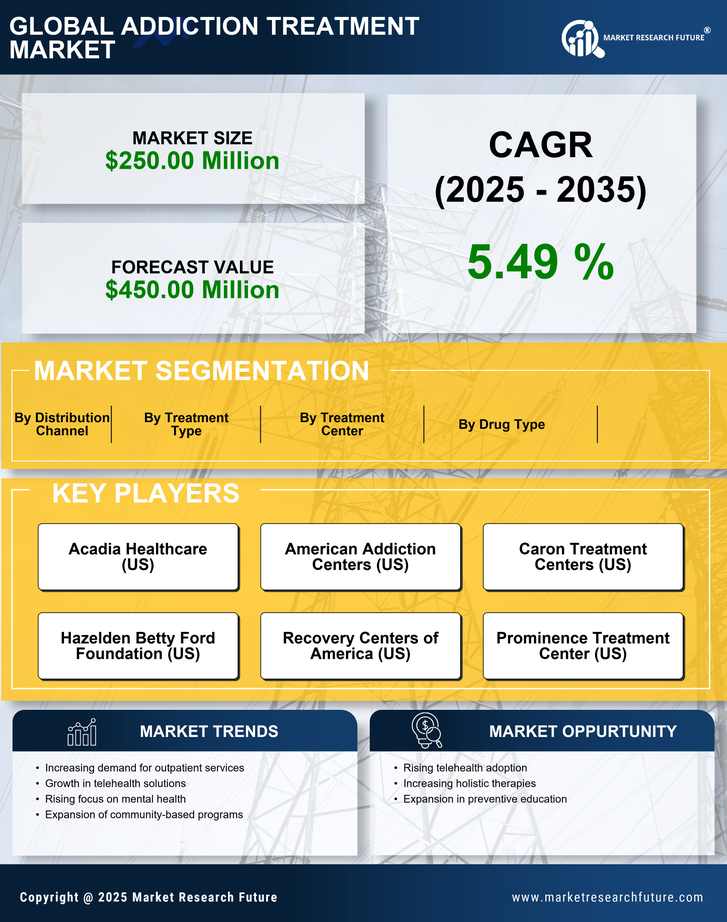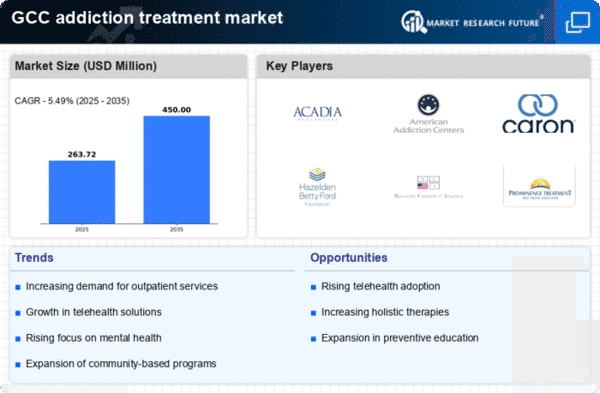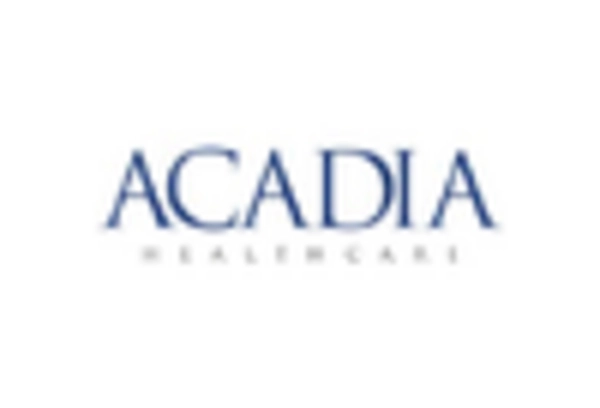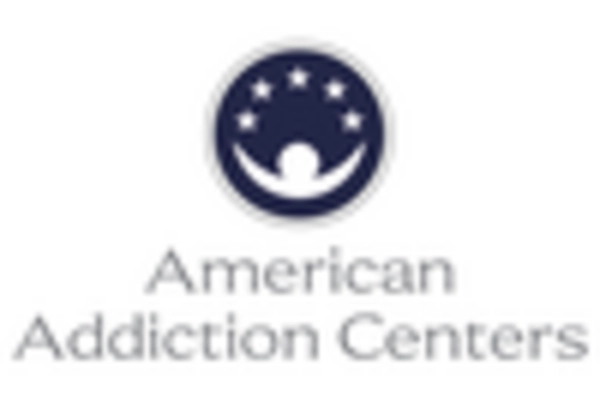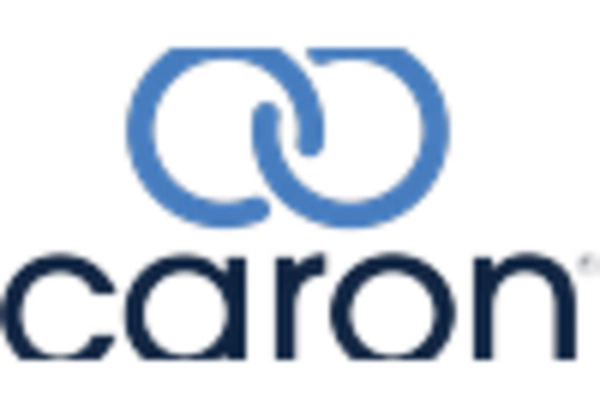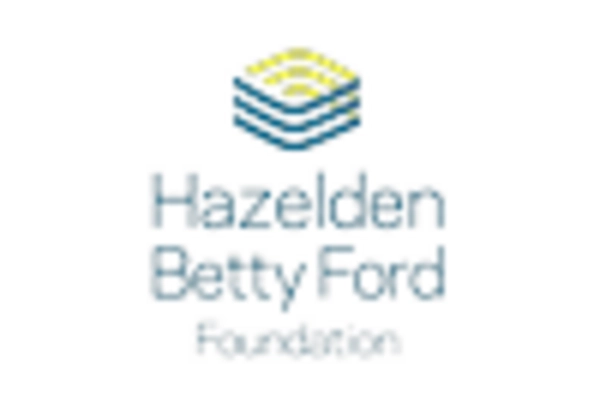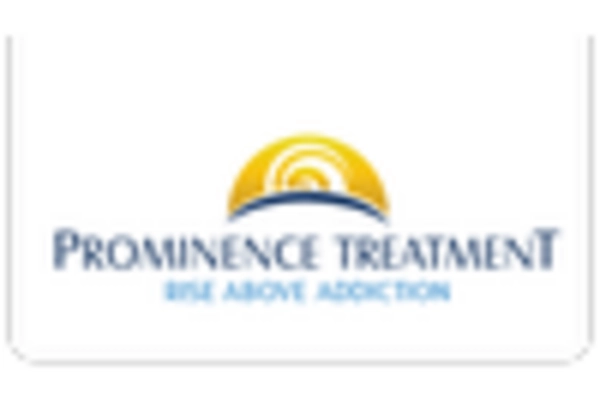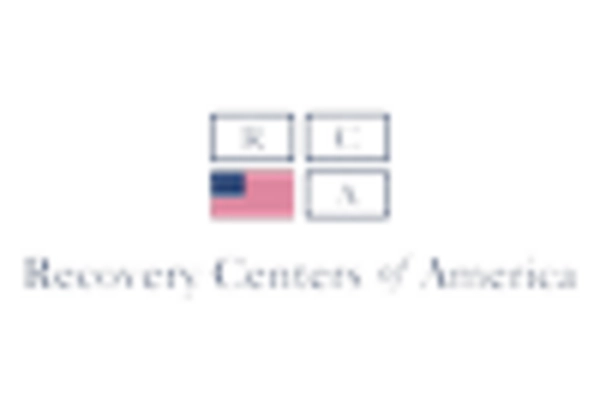Government Initiatives and Funding
Government initiatives aimed at combating addiction are significantly influencing the addiction treatment market. In the GCC, various governments have allocated substantial funding to enhance treatment facilities and support programs. For instance, initiatives to establish rehabilitation centers and provide training for healthcare professionals are becoming more prevalent. This financial backing not only improves the quality of care available but also increases accessibility for individuals seeking treatment. The investment in addiction treatment infrastructure is expected to reach approximately $500 million by 2026, reflecting the commitment of GCC governments to address addiction as a public health priority.
Growing Awareness of Addiction Issues
The increasing awareness of addiction issues within the GCC region is driving the addiction treatment market. Public health campaigns and educational initiatives have highlighted the prevalence of substance abuse, leading to a greater understanding of its impact on individuals and families. This heightened awareness has resulted in a demand for effective treatment options, as more individuals seek help for their addiction problems. According to recent data, the addiction treatment market is projected to grow at a CAGR of approximately 8% over the next five years in the GCC. This growth is indicative of a societal shift towards recognizing addiction as a critical health issue, thereby fostering a supportive environment for those in need of treatment.
Rising Incidence of Co-occurring Disorders
The rising incidence of co-occurring disorders, where individuals experience both addiction and mental health issues, is significantly impacting the addiction treatment market. In the GCC, studies indicate that approximately 30% of individuals seeking treatment for substance abuse also present with mental health conditions. This dual diagnosis necessitates integrated treatment approaches that address both addiction and mental health simultaneously. As awareness of co-occurring disorders increases, treatment facilities are adapting their services to provide comprehensive care. This trend is likely to drive growth in the addiction treatment market, as more individuals seek specialized programs that cater to their complex needs.
Cultural Shifts Towards Treatment Acceptance
Cultural shifts within the GCC region are contributing to a more accepting attitude towards addiction treatment. Traditionally, stigma surrounding addiction has hindered individuals from seeking help. However, recent changes in societal perceptions are fostering an environment where seeking treatment is viewed as a positive step towards recovery. This cultural evolution is likely to expand the addiction treatment market, as more individuals feel empowered to pursue help without fear of judgment. As acceptance continues to grow, the market is expected to see a rise in demand for various treatment modalities, including outpatient services and community-based programs.
Technological Advancements in Treatment Methods
Technological advancements are playing a pivotal role in shaping the addiction treatment market. Innovations such as mobile applications for tracking recovery progress and virtual support groups are becoming increasingly popular in the GCC. These technologies enhance the accessibility and effectiveness of treatment options, allowing individuals to engage with support systems from the comfort of their homes. The integration of technology into treatment plans is expected to increase patient engagement and improve outcomes. As a result, the addiction treatment market is likely to experience a surge in demand for tech-driven solutions, with projections indicating a growth rate of around 10% in this segment over the next few years.
